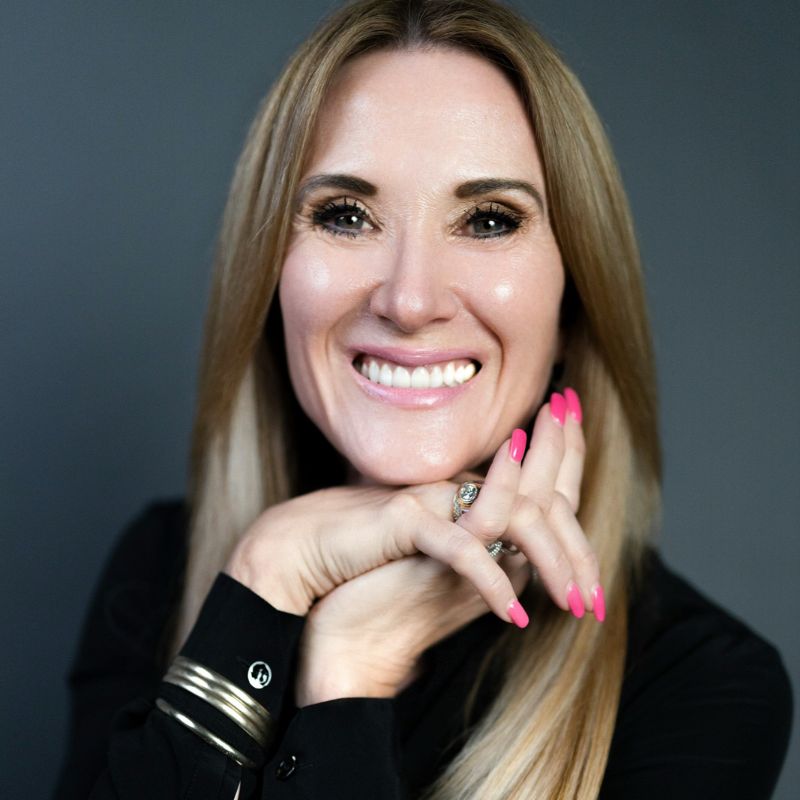In this podcast (episode #583) and blog, I talk to NYT bestselling author, speaker and relationship expert Matthew Hussey about how to stop your internal fears from sabotaging your relationships, learning how to express your needs to others, taking control of your relationship with your own life, and so much more!
Why Do We Wait to Be Chosen Instead of Choosing?
A leading dating expert and confidence coach, Matthew has helped millions of women get the love life of their dreams through his New York Times bestselling book, sold-out live seminars, and powerful training videos. His proven approach inspires women to find love through advice that is honest, authentic and practical, so they not only get the relationship they deserve but feel confident and in control of their own happiness.
Through Matthew’s work as a relationship coach, he noticed that many people tend to wait to be chosen instead of doing the choosing when it comes to their love life, which impacts their ability to find a life partner. This is especially the case for women, who often feel like they need to wait rather than make an active choice when it comes to their romantic relationships, which means they tend to meet the loudest person in the room, not necessarily the person who will be the best partner for them. This passive approach to relationships may work for some people, but for many, it ends up causing more pain and stress. This is why Matthew encourages all people, especially women, to take a more active role in their own love lives: to do the choosing, even if it doesn’t always work out as planned.
Why Do We Choose People Familiar to Us?
But this is only part of the equation when it comes to finding someone to love and share your life with. When people have more choices, they do not necessarily choose someone who will love and treat them better. Often, based on our life experiences, we tend to choose the people that are familiar to us, rather than the people that will make us happy. This is why it is so important that we take a look at what is happening within us when it comes to love. Why do we attach ourselves to some people and not others? What are we looking for, and why? If we are looking for love, why are we drawn back to the things and people that tend to hurt us? What is guiding our choices?
When it comes to our relationship with ourselves and others, the familiar is not always the best choice for us. Sometimes, we have to take that step into the unknown to find true love. However, when something is unfamiliar to us, it tends to feel scary, no matter what it is—even when it is good. We tend to be afraid of the unknown, and drawn to what we know, even when what we know can harm us.
As Matthew points out, for many of us, there is a kind of “teething period” when we start something new, where we have to draw away from the old thing that is familiar to us but holding us back, and get used to the new thing that is good for us but unfamiliar, strange and a bit scary. This is true for many things in our life, including our romantic relationships, especially if we have experienced trauma. Our past often keeps us triggered and stuck in old patterns and ways of being.
Healing Is Not Impossible, Even When it Is Hard
Hence the need for self-compassion: when we find ourselves returning to old ways of being, it is not that we are doing something wrong or we are “bad”. These patterns can be incredibly hard to break, but it is important to remember that you are incredibly strong and resilient, and that healing the past is not impossible, even when it is hard. If you can learn a behavior, you can unlearn it as well, and this is incredibly hopeful!
One helpful way to manage this is to have a little formula for yourself that you can use in the moments when you feel triggered and find yourself reverting to old patterns:
- Remind yourself that you are reacting this way based on past traumas that led to certain coping mechanisms. This feeling is not your fault, but you are having it, and you deserve love and compassion right now.
- Recognize that healing starts with curiosity. Why do you experience life like you do? Is life as you know it the only way people can experience people things? If other people experience different things, can you experience life differently? What if you did something a little different to what you normally do… would things turn out a bit differently? Treat your life a little bit like a social experiment: see where these small changes lead you. You don’t have to believe everything will be better immediately—just see where these changes lead you. Just seeing different is possible can be incredibly freeing! This can become the basis for disrupting your current ways of being, beliefs and patterns, and can be the start of long term change in your life.
Why Is Changing Ourselves First Crucial to Healing?
One of the most damaging beliefs we can have when it comes to our relationships is the feeling that we are damaged, broken and cannot change. This can keep us trapped and unhappy and prevents us from finding the love we all need and deserve, regardless of what has happened to us. Knowing that we can change, even if this is a very hard process that progresses little by little, can be incredibly empowering—we don’t have to stay stuck in the past, and things can be different.
This is also a motivation to focus on changing ourselves first! Knowing how hard it can be to change, we cannot expect that other people should do so while we remain where we are in life. We have to be proactive when it comes to what we want and how we see our life playing out in the future. Change is hard, but an important and intrinsic part of life—we have to embrace it, or we will end up changing anyway, but in a negative direction.
This is why Matthew wrote his incredible new book Love Life: How to Raise Your Standards, Find Your Person, and Live Happily. He explores the most important relationship of all and the essential foundation for a successful romantic partnership: the relationship we have with ourselves. Then he provides a practical roadmap for letting go of past relationships, overcoming the fear of getting left behind, and finding the love we want.
Originally published by Dr. Caroline Leaf. Used with permission.
Photo Credit: SWN Design via Canva Pro

🧠 Ready to reset your mind before stress takes over?
👉 Order Help in a Hurry at helpinahurrybook.com and discover the power of small daily shifts that protect your peace and rewire your brain for calm, resilience, and clarity.




